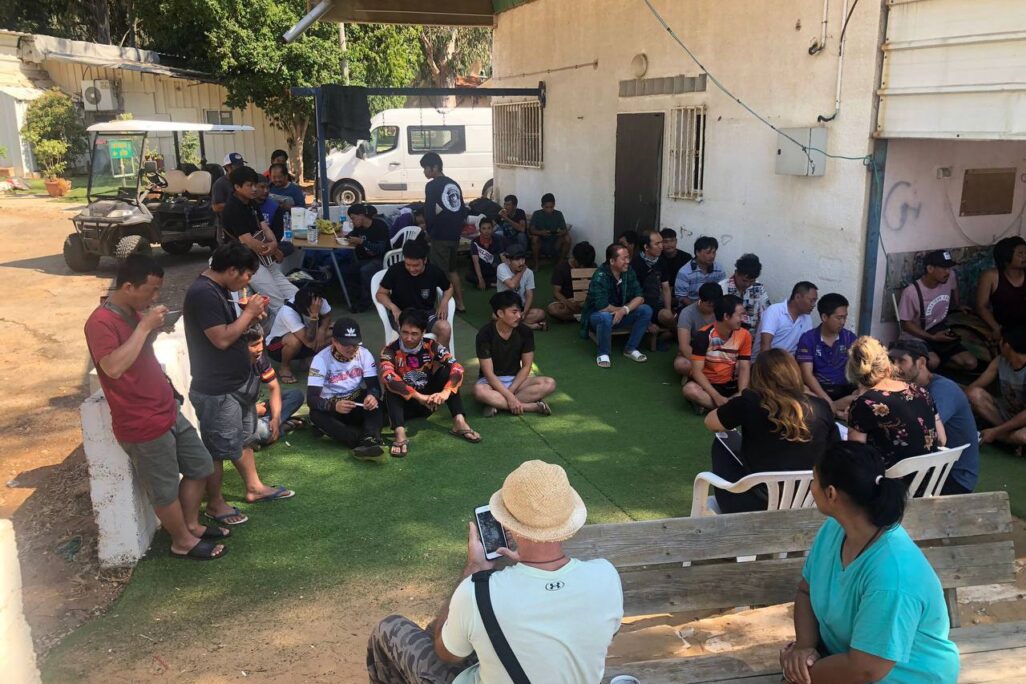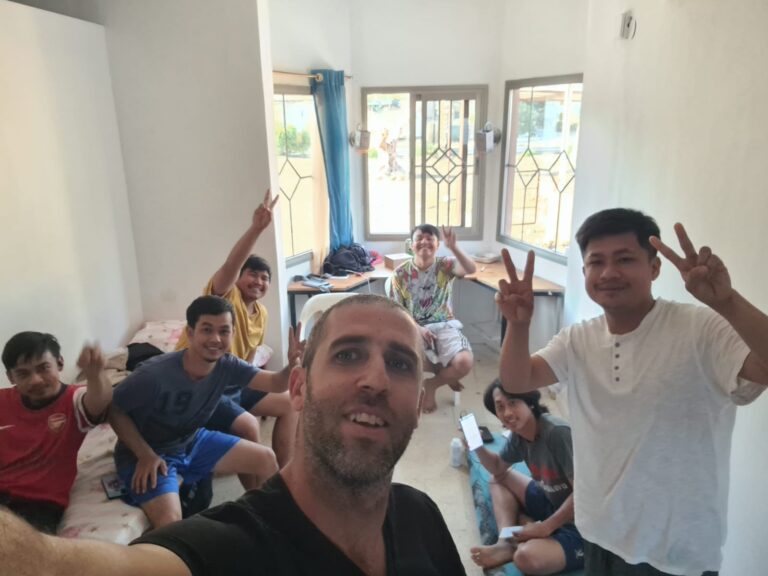
Thousands of foreign agricultural workers in Israel have been facing significant hardships since the war broke out on Oct. 7, leading to severe impacts on the agricultural sector. Some workers are left jobless after being evacuated from the area surrounding Gaza, some are attempting to return to their home countries, and some continue to work while concerned for their safety during the ongoing war. The workers must navigate their own needs under pressures from Israeli employers who face a critical shortage of workers.
According to the Population and Immigration Authority, almost 7,000 foreign workers left Israel within two weeks of the outbreak of the war, including 1,889 Thai nationals from the agricultural sector. Dozens of foreign laborers working in the Gaza Envelope were murdered, kidnapped to Gaza, or injured by Hamas.
Dr. Yahel Kurlander from Tel Hai Academic College is a member of an aid group for agricultural workers. Since Oct. 7, the group has been helping Thai workers deal with rising tensions with their employers. She spoke to Davar about workers receiving threats of withheld wages or termination of employment, or employers holding their passports in order to keep them working in dangerous and vulnerable areas.
"Our demand is that full freedom of choice be given to the Thai worker to stay, to change their employment, to go to Moshav Hatzeva, which the Population Authority assigned the laborers’ work to [in the evacuation], or return to Thailand,” she said.
"We all understand the plight of local farmers, but people come before cows and fruits. My father runs a farm in Beit Hillel,” near the border with Lebanon, she said. "I constantly advertise for him to find willing workers. [That is to say] paid volunteers, people who understand the danger."
The aid group emphasized that they are not against the local farmers who are desperate for workers. The predicament is clear to them, but they demand that farmers treat their foreign workers as they treat their neighbors, children, and other citizens of Israel. Regarding the Ministry of Agriculture's decision to encourage Israeli and foreign workers to work in agriculture at the borders through the payment of incentives, Kurlander said, "Bonuses and incentives are a good method. As long as the freedom of choice is preserved, it is acceptable."
There are also farmers who emphasize the workers' right to choose. One of them is Hanan Shor, who manages the avocado crops of Kibbutz Erez and Kibbutz Or Haner—617 acres of crops which border Gaza. Access to fields is currently prohibited. He is also the director of the union of avocado growers in the south, which is responsible for almost 5,000 acres of avocado trees.
On Oct. 8, the day after the Hamas attack, a rescue operation was organized for the workers of Or Haner and Erez by the Sha’ar HaNegev Regional Council. The workers were evacuated, and at a later stage Shor returned to the area to collect their passports so that they could leave Israel if they chose.
"On Saturday [Oct. 7], our workers did not want to evacuate," he said. "On Sunday, they agreed. After the rescue, I contacted a farmer I know from Moshav Ein Yahav in the Arava, a nice man, who agreed to take in 25 Thai workers who came to him."

"The situation now is that most of the workers returned to Thailand, but many left the option open for a return to work in Israel," Shor said, "Only one remained in Ein Yahav. These are workers who experienced the attack. They saw what happened to their friends, and that's what caused them to choose to return to Thailand."
At the moment Shor is with his family in Kibbutz Ma'ale HaHamisha in central Israel, "going loopy" due to idleness and concern. At this stage the condition of his farmland after the attack is not yet known. What was burned? What was uprooted? What dried up due to the destruction of the irrigation system? Recently, he went down to the farm with volunteers to take care of the irrigation, hoping to save something. He intends to return to work when possible, and hopes to plant avocado groves five kilometers away from the Gaza border.
"Our motto is ‘up to the last furrow’. It's not a symbol, it’s the truth," he said.
Shor says that there are two bomb shelters in the avocado groves, and the accommodation for the workers in the kibbutz is adjacent to a large protected area. But the fields are large, and vulnerable to small arms fire.
"We don't force anyone to stay," he said. "Our attitude towards our workers is considerate, and we are always taking care of them. But those who don't wish to stay can leave. No farmer needs a scared worker. We'll manage somehow."






